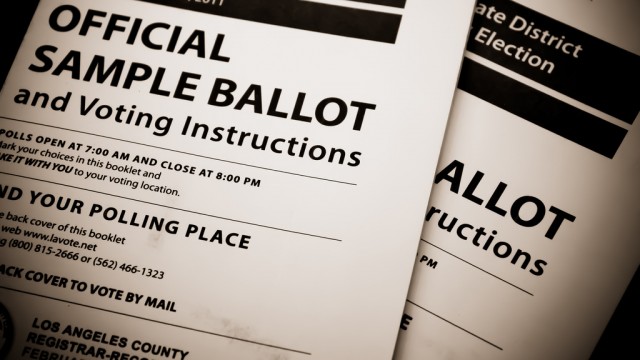In the coverage following last week’s off-off year elections — mostly focused on the Republicans’ success in Kentucky’s gubernatorial race and the failure of an Ohio ballot measure to legalize marijuana — the press has largely overlooked some other big news from Nov. 3: The public is eager to reform how American political campaigns are financed.
But the biggest step forward was in Seattle, where voters approved a system in which Seattleites would get four free vouchers, each worth $25, to “spend” on candidates’ campaigns, encouraging everyone to get involved in financing elections, not just the well-heeled and special interests.
Reformers note that all three proposals won by a solid majority. The Maine initiative was supported by 55 percent of voters, the Ohio initiative got 71 percent and the Seattle initiative more than 60 percent.
“The takeaway is that people are ready for change, and that it is winnable at the state and local level, even though progress in Congress has maybe stalled for now. These were big wins,” says Nick Nyhart, president and CEO of Every Voice Center, a non-partisan, good-government advocacy group.
The growing movement to get the unprecedented wave of post-Citizens United special interest cash out of politics hasn’t had many tangible victories in recent years as the Supreme Court has continued to clear the way for unprecedented sums pouring into politics. Decreasing the power that billionaires and corporations hold over politicians is part of policy discussions on the left, and, increasingly, on the right, but hasn’t translated into action by elected officials.
“We can’t solve all of our democracy woes by ballot initiative, but I think ballot initiatives are an important bellwether for what Americans want,” Wendy Weiser, director of the Democracy Program at NYU’s Brennan Center for Justice noted. “Voters are increasingly fed up with a political system that they feel is out of their control and not responsive to them. I hope that all the candidates for 2016 are listening.”
But as some states are taking steps in the right direction, others are tumbling head over heels backwards. Most recently, Wisconsin.
The state legislature is finalizing a pair of bills that would loosen rules for disclosing donors and roll back oversight of campaign finance. One would effectively make it impossible to determine which special interests are influencing state politics. “It underscores the fact that elected officials will take steps to eliminate threats to their continued election,” says Nick Nyhart.
The other would break up the state’s Government Accountability Board, which drew the ire of Republicans for taking part in an investigation of allegations that Governor Scott Walker’s 2012 campaign against his recall had illegally coordinated with special interest groups. In July, the state’s Supreme Court ruled 4-2 that the coordination was legal, even though four of the justices on the court were elected with money from the same groups with which Walker was accused of illegally working. (The state court’s decision conveniently came just three days after Walker had announced his now-abandoned presidential bid.)
The Brennan Center’s Wendy Weiser says Wisconsin is “an illustration of the problem that Maine and Seattle are trying to solve… Part of the reason why people are doing [campaign finance reform] is because of the things that are happening in Wisconsin.”
Reformers agree that eventually, action will have to move beyond the state to the national level. Every Voice’s Nyhart hopes that politicians will take their cue from state-level support for campaign finance reform to escape a system they don’t really like themselves. “A dirty little secret of Washington is how much incumbents themselves dislike the constant dialing for dollars,” he says.
Though the Republican side isn’t making plans for campaign finance reform any time soon, its candidates have at least acknowledged the problem. Several have made disparaging comments about opponents’ super PACs, and Donald Trump tends to draw big applause when he declares that, unlike his competitors, he’s a billionaire already, and doesn’t need other fat cats to fund his campaign. (That may not be entirely true, but since when has that mattered?)
Another federal-level mechanism for reform, the Government By the People Act, would support publicly funded elections through a voucher program like the one implemented in Seattle. Only one of its 156 co-sponsors is a Republican, but Nyhart hopes that could change: Maine’s successful effort this year was bipartisan, and had a number of vigorous Republican proponents. This year was the “beta test,” Josh Silver told The Washington Post. “Next year, we’re going to be in quite conservative states, and we’re going to be talking about corruption a lot.”
On the whole, America remains without a silver-bullet solution to Citizens United and the broken campaign finance system. But reformers are hopeful that, coming out of last week’s elections, states and cities will begin to make the case that Americans have an appetite for these reforms, and that they can work.
“The door is wide open for more change,” says Nyhart. “We think that when people see what was possible in Maine and Seattle, they’ll say, ‘Let’s make that kind of change happen in my state.’”




